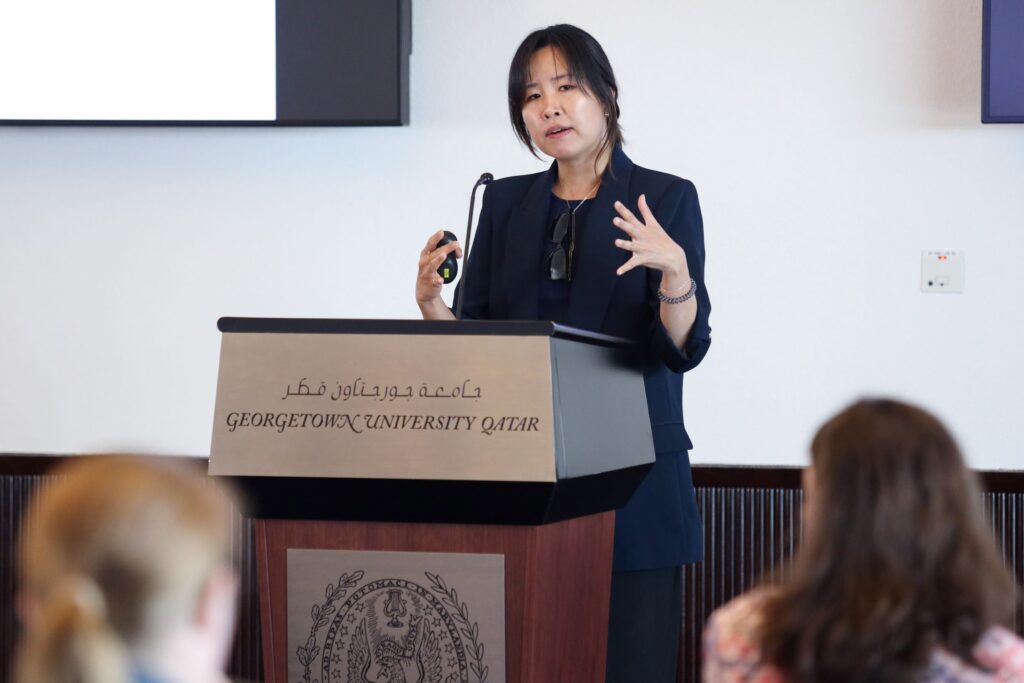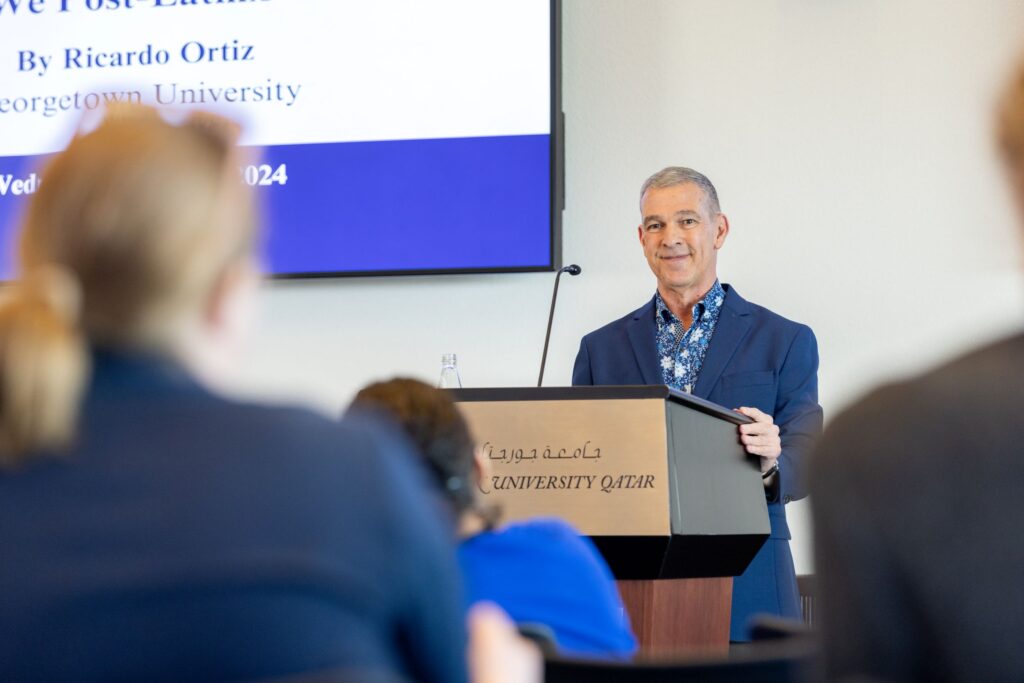GU Scholars Deconstruct Caste Systems and Latin American Identity During Week of Scholarly Exchange
Two visiting scholars from the Georgetown campus in Washington, DC, brought a global perspective to contemporary identity issues at GU-Q’s Faculty Seminar Series, covering global caste systems and representations of Latin American identity.
“Untouchability”: A Global Phenomenon

Dr. Diana Kim, Assistant Professor at the Edmund A. Walsh School of Foreign Service and a core faculty member of the Asian Studies Program, shared research from her newest book project – a transnational study of caste or “untouchability.” Caste, she explained, creates divisions, where discrimination occurs within a seemingly homogenous population and creates micro-hierarchies based on factors like historical occupation and family background.
She argued that caste is a global and transnational phenomenon that affects an estimated 250 million people across Asia, Africa, and the Middle East living under caste conditions, with affected diaspora communities in Europe and the Americas.
Yet, while the Dalits in India and Nepal remain highly visible and the Burakumin in Japan have become an invisible minority, Korea’s Baekjong have disappeared. Dr. Kim attributed this shift to the social upheaval caused by World War II and the Korean War, events that she argued created opportunities for social leveling and a rethinking of national identity. In contrast, the state in Japan and India adopted different types of institutions for addressing untouchability, which has had lasting consequences.
“Untouchability is often invisible as a category itself within today’s international human rights issues not least because they are collapsed into the racial or ethnic categories or minoritizing labels that place people based on whether or not they have slave descendants. The history of untouchability is tied to that history but is not the same. That very blurring, I would argue, is part of how decolonization unfolded,’’ said Dr. Kim.
Latinx Literature: Redefining Identity

In his talk, Dr. Ricardo Ortiz, a Professor of US Latinx Literatures and Cultures, explored how Latinx identity is constructed in contemporary literature. He analyzed literary and scholarly texts that engage with the construction of the identity of the diverse group of people who have roots in Latin America and how it intersects with the politics of racial, ethnic, and cultural identity, as well as environmental, and mystical worlds. Questions raised by these works suggest that established categories within Latinx literature do not accurately capture the complexity of contemporary conditions, experiences, and expressions of identity within the Latinx diaspora.
According to Ortiz, how this literature is interpreted has everything to do with the linguistic roots of identity terms and the construction of humanism. “The question of who can represent, who can stand forward as the human, percolates beneath the inquiry into literature’s constitution and values,” he noted. At a time of self-interrogation in this field, he pointed to an alternative approach that may allow Latinx literature to overcome historical limitations and allow alternative critical forms of knowledge to emerge.
About the Short-term DC Faculty Visitors program
Established by Dean Safwan Masri, the Short-term DC Faculty Visitors program fosters collaboration between GU-Q faculty and distinguished scholars from Georgetown’s main campus in Washington, DC. Professors Kim and Ortiz were hosted by GU-Q professors Dr. Anne-Sophie Pratte and Dr. Rogaia Abusharaf during their week-long visit, which included engagement and exchanges with faculty and students.